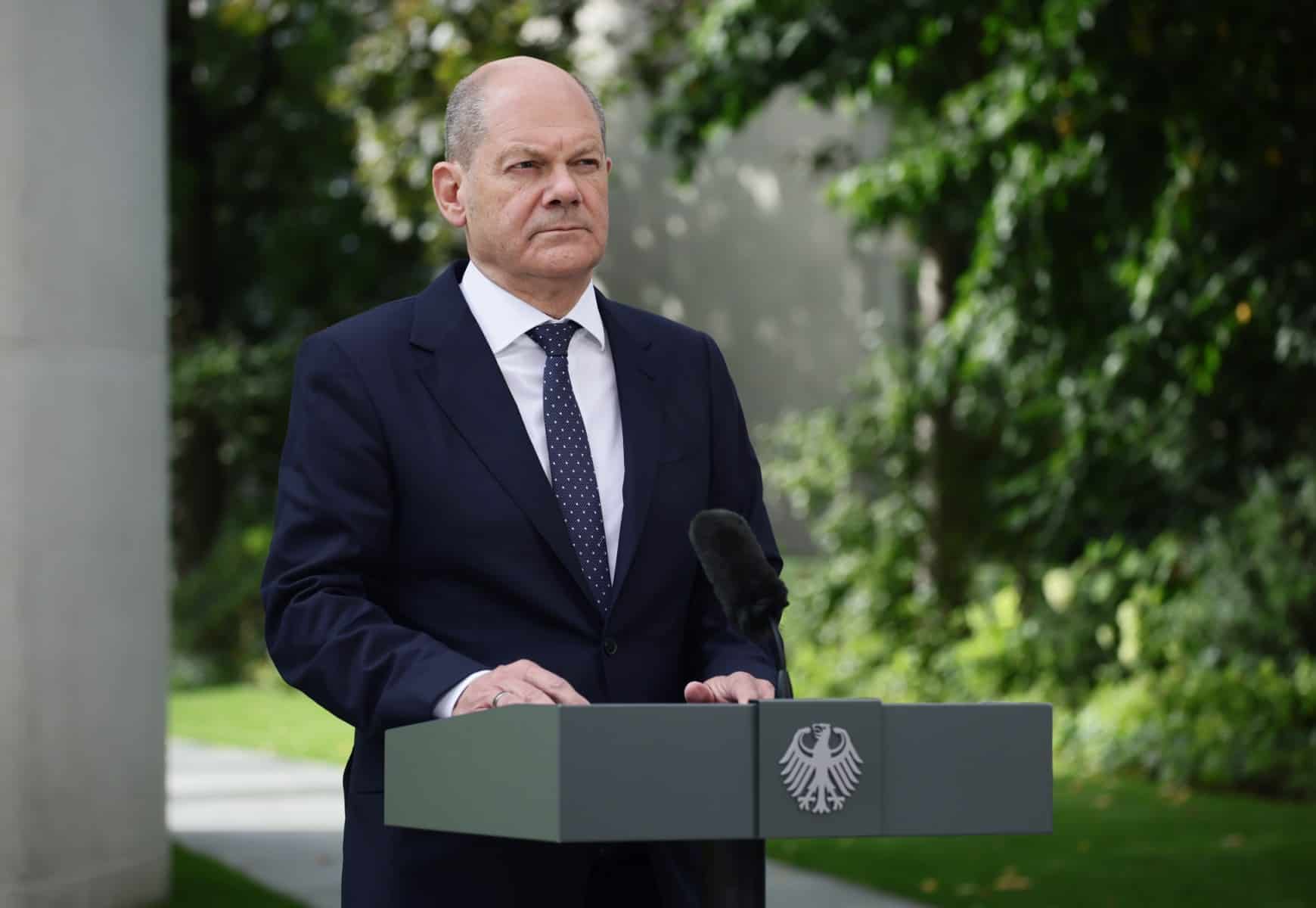Berlin, Germany – Chancellor Olaf Scholz will visit Saudi Arabia and meet Saudi Crown Prince Mohammed bin Salman as part of a Gulf trip, his spokesman said Monday, as Germany rushes to secure energy supplies.
Scholz, whose two-day trip next weekend will also take him to Qatar and the United Arab Emirates, becomes the latest Western leader to meet with the crown prince.
Accompanied by a business delegation, Scholz will visit Saudi Arabia on Saturday, where he will meet with the crown prince and — if his health permits it — King Salman, government spokesman Steffen Hebestreit said.
He did not go into detail about the reasons for Scholz’s Gulf visit but said he would be “very surprised” if the topic of energy was not discussed.
In July, French President Emmanuel Macron held talks with the crown prince in Paris, and US President Joe Biden visited the kingdom.
On Sunday, Scholz will head to the UAE and meet with President Sheikh Mohamed bin Zayed Al-Nahyan, and in the afternoon will hold talks with Qatari Emir Sheikh Tamim bin Hamad Al-Thani.
German Economy Minister Robert Habeck already visited Qatar and the UAE in March in an effort to find alternatives to Russian gas, which Germany has traditionally depended on heavily.
Russia’s decision to cut off supplies has triggered an energy crisis in Europe, with consumers and businesses facing soaring bills as winter approaches.
As a result, Europe and its allies urgently seek fresh sources of fossil fuels.








